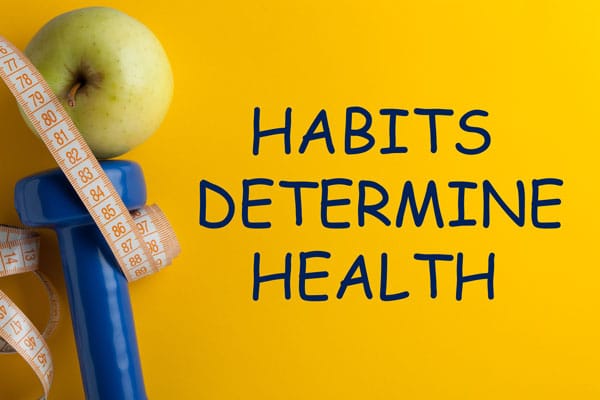How to Develop Healthy Habits for a Healthier Life

It’s never too late to adopt healthier habits, but why do we struggle to put them into practice?
Out with the old—in with the healthy.
Every new year begins with volumes of articles and feature stories about New Year’s resolutions concerning healthy habits. Surprisingly, most people acknowledge the health benefits of these habits but struggle with developing them.
Here are 8 tips you should consider for developing healthy habits that will help you make better practices a reality.
#1—Focus on one small, healthy habit at a time.
If you want to develop healthy habits, your best chance for success is to focus on one habit at a time.
You’ve decided to start eating healthy at each meal. You can succeed by breaking this new habit into smaller parts.
Rather than replacing all the food in your cupboards, pantry, and refrigerator, begin by developing one healthy meal per day, such as breakfast. Stick to it until you are comfortable and successful with this first small step. Then you can move on to creating a healthier lunch—then supper.
#2—Identify your triggers and obstacles.
To support the development of a healthy habit, it’s essential to have a clear idea about the triggers and obstacles you’ll encounter. Once you are able to identify what makes you struggle, you can plan how to overcome it.
For example, if you want to quit eating junk food after work when you’ve had a bad day, recognize the bad day as a “trigger.”
Plan a better way to overcome this trigger when you get home from work. Consider exercising, meditating, or taking a walk.
Doing something productive can help reduce the stress of your bad day. Counseling can also assist with how we identify and react to stressful situations.
#3—Identify the excuses that are holding you back.
Sometimes, excuses can hold you back from practicing a healthier habit. Once you identify your excuses, it becomes easier to come up with solutions to overcome them.
For example, you may want to start exercising, but the nearest gym is 30 minutes from your home. Instead of making excuses about not being able to exercise, plan an exercise routine at home. This will eliminate the excuse and make it easier to practice your new habit.
#4—Plan for success but prepare for some setbacks.
When you start practicing a healthy habit, don’t expect to succeed in just a few days without any setbacks. In fact, you might face failure many times before you are able to succeed repeatedly.
Don’t dismay. Feeling guilty about setbacks can become an excuse to abandon the effort. However, if you have mapped out a solid plan, including how you will recover from setbacks, you can quickly get back on track.
#5—Get support from your friends and family.
The people surrounding you have much to do with any change in your life. Let them know the healthy habit you want to practice. They likely will support your efforts, which will help you achieve your goal.
If you need additional support, seek a trusted friend to be your “accountability partner.” Ask them to help you by reminding you to stay on track with your plan and goals.
#6—Work on your environment.
Suppose you want to eat healthier meals, but when you open your refrigerator door, it’s loaded with junk food, which is a “stumbling block” to your goal. If you eliminate the junk food in your refrigerator, you have successfully changed a small but critical piece of your environment.
You may find that your environment contains triggers that often derail you from your plan. If so, alter the parts of your environment within your control and set yourself up to succeed.
#7—Give yourself some time.
Establishing a new, healthy habit is a process that requires patience. It’s essential to continue practicing your new habit, including recovery from setbacks, until these behaviors become routine habits.
According to research studies on habit formation, the median length of time for a habit to become a routine was 66 days.
#8—Work with your healthcare provider.
Your healthcare provider can be an excellent resource for support and guidance as you begin your healthy habit plan. They can provide tips for success and work with you to address any underlying health issues that may be affecting your success.
You’re never too old, overweight, or out of shape to make healthy changes. Work with your healthcare provider to consider different strategies until you find what works best for you.
Healthier habits are worth the effort.
It’s worth the effort to develop healthy habits that lead to a healthier, more enjoyable life. Once you begin your journey to a healthier you, the most critical step you will take is the next one.

